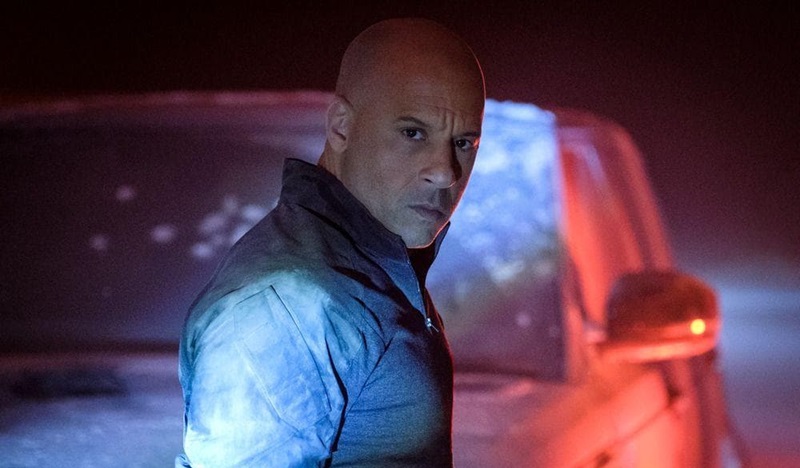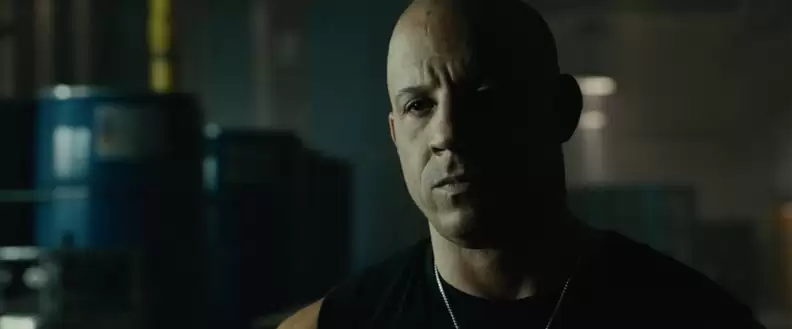Top 5 Movie Quotes of the 21st Century
The 21st century has gifted cinema lovers with numerous unforgettable movie quotes that have left indelible marks on pop culture. The top 5 quotes from this era, according to popular consensus, are a testament to the brilliance of scriptwriting and the power of cinematic storytelling.
The first on the list is from the 2008 film, The Dark Knight. Heath Ledger’s Joker says, «Why so serious?» – a chilling line that encapsulates the character’s chaotic nature and Ledger’s unforgettable performance. Next up is from the 2001 fantasy adventure, The Lord of the Rings: The Fellowship of the Ring. Gandalf’s wisdom shines through in the line, «All we have to decide is what to do with the time that is given to us,» which resonates with audiences on a profound level.
The third quote from the list is from the 2004 romantic drama, The Notebook. «I want all of you, forever, you and me, every day,» said by Ryan Gosling’s character, Noah, is an emotional line that pulls at the heartstrings of viewers and showcases the depth of his love for Allie. In fourth place is a memorable line from the 2012 science fiction film, The Avengers. «I’m always angry,» Hulk’s line, perfectly encapsulates his character’s constant internal struggle.
Last but not least, the fifth quote comes from the 2009 science fiction film Avatar. The line, «I see you,» spoken by the Na’vi, is not just a greeting but a deep recognition and acceptance of the other person. This phrase became symbolic of the movie’s themes of unity, empathy, and understanding.
These movie quotes have transcended their respective films, becoming iconic staples in the cinematic world and pop culture. They have the ability to evoke emotions, provoke thought, and sometimes, even inspire change, emphasizing the potent influence of cinema on society.
The Dark Knight — «Why so serious?»
The Dark Knight, directed by Christopher Nolan, is a film that delves into the depth of human psyche and explores the concept of chaos in society. The phrase «Why so serious?» — a line that has since become iconic — is uttered by the Joker, portrayed masterfully by Heath Ledger. The Joker’s character is a chaotic, anarchic force who uses this catchphrase to underscore his worldview: the pointlessness of norms, societal order, and predictability.
He uses this line to challenge individuals to question their own seriousness and the constructs they abide by, all while he, with his sadistic humor and disturbing grin, revels in the pandemonium he creates. The question is not just a taunt, but a philosophical proposition, inviting one to consider the absurdity of rigidly adhering to societal rules that limit one’s freedom and potential.
Ledger’s chilling performance brings this chaotic and nihilistic view to life, making audiences question their own beliefs and preconceptions. The phrase also highlights the stark contrast between the Joker and Batman, who, despite his vigilante methods, upholds order and stability.
The Joker’s «Why so serious?» is a haunting reminder of the potential for chaos and the fragility of societal order. It’s a question that echoes throughout the movie, emphasizing the Joker’s vision of a world without rules, a world that he believes would be more truthful, more ‘fun’. This line, with its dark humor and deep implications, has come to symbolize the Joker’s character and the chaos he stands for, making The Dark Knight a thought-provoking exploration of societal norms and the human condition.

The Lord of the Rings: The Fellowship of the Ring — «One ring to rule them all.»
The Lord of the Rings: The Fellowship of the Ring is a captivating saga penned by J.R.R. Tolkien, centered around an omnipotent ring with the power to command all others. The phrase, «One ring to rule them all,» reverberates throughout the narrative, describing the Ring’s immense might and the peril it poses to Middle Earth. This phrase encapsulates the essence of the ring’s domineering power and foretells the hazardous journey the fellowship must undergo to prevent its catastrophic potential.
The ring in question, once crafted by the Dark Lord Sauron, was intended as a tool to control the bearers of the nineteen other rings and thereby, dominate all of Middle Earth. The phrase underscores the ring’s ability to ensnare minds, bend wills, and corrupt even the noblest of intentions. It serves as a constant reminder of the pervasive threat that the fellowship seeks to neutralize.
The narrative masterfully illustrates the ring’s allure and the destructive impact it can have on those who seek to wield its power. Its seductive dominance is such that even the most virtuous are not immune to its charm, leading to internal struggles and conflicts within the fellowship. The monumental task of destroying the ring falls on the shoulders of Frodo, a humble hobbit, chosen precisely because his kind is least likely to be swayed by the ring’s influence.
Thus, «One ring to rule them all,» is not merely a phrase within the narrative. It embodies the pervasive, omnipresent danger posed by the ring, and serves as a testament to the fellowship’s daunting mission. It encapsulates the perilous journey, internal struggles, and the looming threat that the fellowship must overcome to ensure the survival of Middle Earth. The phrase epitomizes the central conflict within the tale, making it one of the most iconic lines in fantasy literature.
The Matrix — «I know kung fu.»
The Matrix’s iconic line, «I know kung fu,» spoken by the protagonist Neo, played by Keanu Reeves, is one of the most memorable moments in the film. This line is delivered after Neo experiences a unique form of accelerated learning, where information and skills are downloaded directly into his brain. Transcending the boundaries of traditional education and training, this method allows Neo to acquire profound knowledge and mastery of kung fu, a Chinese martial art, within mere seconds.
This pivotal moment in the movie symbolizes Neo’s awakening to the limitless potential within himself and the virtual realm of the Matrix. It also sets the stage for the intense and visually stunning action sequences that follow, showcasing Neo’s newfound martial arts prowess. Moreover, the line «I know kung fu» has since become a cultural touchstone, embodying the idea of sudden enlightenment or instant acquisition of knowledge.
It encapsulates the visionary sci-fi concepts that The Matrix is renowned for, blending futuristic technology with ancient martial arts. The line also perfectly captures the surreal and transformative journey Neo embarks on, from a mundane existence to becoming the chosen one in a reality-bending war. Overall, «I know kung fu» is more than just a line of dialogue; it is an integral part of the film’s exploration of reality, identity, and human potential.

Gladiator — «What we do in life echoes in eternity.»
The renowned phrase, «What we do in life echoes in eternity», was famously spoken by Maximus Decimus Meridius, a character in the film Gladiator. This statement underscores the vast influence our actions can have, extending beyond our mortal existence and resonating through the corridors of time. The gladiators of the Roman Empire embodied this principle, with their life choices etching indelible marks into the annals of history.
The gladiators were often men of significant physical strength and endurance, who were thrust into the arenas to engage in ferocious battles. The choices they made in these battles, be it displaying valor in the face of adversity or showing mercy to a defeated opponent, created ripples that permeated the fabric of Roman society and culture.
The spectators held their breath as they watched these gladiators, their hearts pounding in rhythm with the clash of swords and shields. Their actions in the arena, a microcosm of life itself, held the potential to inspire, horrify, and provoke thought long after their earthly sojourn had ended.
Maximus, as portrayed in the film Gladiator, was a personification of this concept. His decisions, his bravery, and his unyielding pursuit of justice, despite numerous challenges, left an indelible impression on both his contemporaries and future generations. His life and actions echoed through eternity, serving as a testament to human resilience, courage, and the power of choice. His legacy transcended his mortal existence, influencing millions through a cinematic portrayal of his life.
In essence, the gladiatorial quote is a potent reminder of the lasting impact of our actions. Every decision we make, every path we choose, and every stand we take has the potential to resonate beyond our immediate circumstances and lifetime. Like the gladiators of old, we are all architects of our own legacies, crafting narratives that may echo in eternity.

The Shawshank Redemption — «Get busy living or get busy dying.»
«The Shawshank Redemption» is a classic cinematic masterpiece that illuminates the profound idea of «Get busy living or get busy dying.» This phrase, uttered by the protagonist, Andy Dufresne, embodies the spirit of resilience, determination, and hope in the face of despair.
Being confined within the grim walls of Shawshank prison, Andy realizes that he has two stark choices: to either let the oppressive circumstances drain the life out of him, or to actively seek a way to reclaim his freedom. This poignant mantra serves as a beacon of light in his darkest hours, guiding him towards a relentless pursuit of liberation.
The beauty of this statement lies in its universal relevance. It is not merely confined to the boundaries of a penitentiary but extends to the life of every individual. It underscores the criticality of action, the necessity to strive continuously, and the refusal to succumb to adversity. It encourages individuals to seize control of their destinies, despite the challenges they face. This philosophy is a testament to human resilience and the power of hope.
In essence, «Get busy living or get busy dying» is a powerful message of self-empowerment and relentless pursuit of one’s dreams. It serves as a stark reminder that we are all prisoners of our circumstances until we muster the courage to break free. Through this message, «The Shawshank Redemption» inspires viewers to rise above their tribulations and relentlessly strive for a better life. It is a timeless concept, a mantra for survival that transcends the confines of the movie screen and resonates with audiences worldwide. It is not merely a choice but an obligation to oneself, a testament to our inherent right to freedom and happiness.